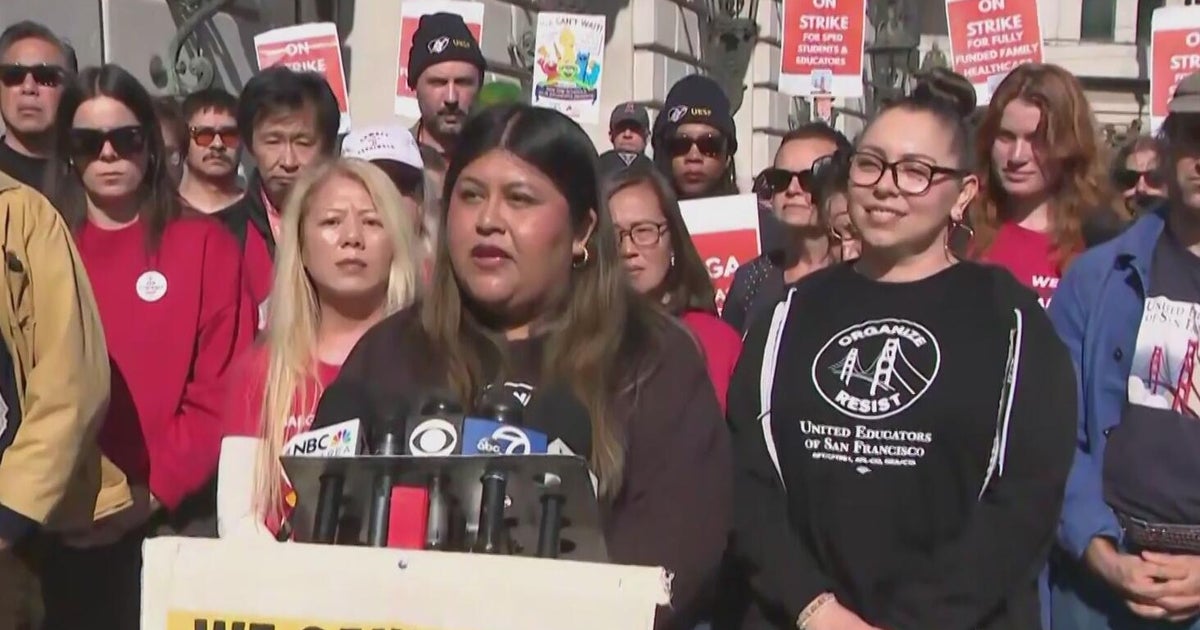Texas Primary Date In Doubt After Deal Talks Stall
SAN ANTONIO (CBSDFW.COM/AP) - Texas is all but certain to have an even later say in choosing the Republican presidential nominee, after what looked like a breakthrough deal in the state's bitter dispute over redistricting maps ended with wide rejection of the proposal. That left the date of the Texas primaries in limbo on Tuesday, a day after a court-imposed deadline for the state and minority advocacy groups to compromise came and went without temporary maps that everyone could agree on for the 2012 elections.
A federal court in San Antonio had told both sides to reach a deal by Monday, or see the April 3 primary date pushed back for a second time. The Texas Attorney General's office appeared to hit the deadline by announcing an agreement with some of the advocacy groups, but that was soon overshadowed by other prominent black and Hispanic organizations blasting the deal.
The court also appeared to reject the partial deal, as U.S. District Judge Orlando Garcia urged talks to continue toward "a general agreement between all" parties.
Now the date of the Texas primaries is in doubt again.
Republicans feared that another delay could prevent Texas voters from helping decide which GOP candidate challenges President Barack Obama in November. Republican and Democratic party leaders have said that an April 17 vote may be possible absent a deal, if the court could quickly draw revised maps.
The advocacy groups are suing the state, alleging that the Republican-controlled Legislature ignored the state's burgeoning Hispanic population when it redrew boundaries for congressional and state legislative districts.
Texas Attorney General Greg Abbott had optimistically introduced the partially agreed plan earlier on Monday. It had the backing of the Mexican American Legal Defense and Education Fund, one of the largest groups that sued the state. Under the proposal, Hispanics would control two of four new congressional seats that Texas was awarded following the 2010 census, which reflected the state's population boom in the last decade. But apart from MALDEF and Democratic U.S. Rep. Henry Cuellar of Texas, most others involved in the lawsuit said that the proposal fell far short of a fair compromise.
Luis Vera, an attorney for the League of United Latin American Citizens, scoffed at the new deal and accused the state of overselling the number of plaintiffs that signed off on it. Late on Monday, his group and six of the other nine plaintiffs filed court briefs formally opposing the plan. Vera said that talks had halted, adding, "There's no agreement, and there's nothing to talk about."
In a written statement late on Monday, Abbott did not acknowledge the judge's order, but said that his office "has worked with a wide range of interest groups to incorporate reasonable requests from all parties" without compromising the will of the Texas Legislature. He has said that a primary likely couldn't be organized before April 17.
When asked earlier on Monday if he was happy with the proposed compromise, Abbott said, "It's a step in the right direction." He said that failure to reach a consensus wasn't for a lack of trying.
MALDEF attorney Nina Perales said that the maps put forward by Abbott came very close to what her organization requested. She said that in addition to creating two new Hispanic-dominated congressional districts, the plan also created two Hispanic-majority districts in the Texas House and restored two Hispanic districts in the Rio Grande Valley and Nueces County. "Although they are not perfect, the plans that have been released by the state today ... more fairly reflect the growing strength of Latino voters in Texas," Perales said. "They properly recognize that protecting voting rights is more important than partisanship or incumbency protection."
But most of the groups suing the state said that the deal was no compromise. The Mexican American Legislative Caucus argued that the new plan actually dilutes minority influence in some areas. Its chairman, Democratic state Rep. Trey Martinez Fischer, said that the two Hispanic congressional seats would come on the condition of losing ground in other districts currently dominated by Hispanic voters. "If you tell me we're going to get these seats at the expense of another district, that's not a win," he said.
Democratic State Senator Wendy Davis of Fort Worth also said that she is not happy with the most recent lines drawn for her district. "The Attorney General's office has actually presented maps to us that continue to diminish and weaken the voice of the minority community in Senate District 10, and it's something that we simply cannot agree to," she said. Davis argues that the maps on the table would take away African American and Hispanic voters in her district.
In Washington, another federal court is weighing a separate case, challenging whether maps drawn by the Texas Legislature were legal. Since Texas is one of nine states with a history of racial discrimination, the Washington court or the U.S. Department of Justice must pre-approve any changes to state election laws. A ruling in that case isn't expected for at least another month.
The stakes are unusually high, because the nation's second-largest state is adding four congressional seats -- and the way they are divvyed up could be pivotal in determining which party controls the U.S. House. The Texas Legislature got the first crack at drawing new maps for Congress and the Statehouse, but their plan was quickly challenged by Cuellar and minority groups.
If the court rejects the compromise, the judges could split the primaries into two elections -- one for the presidential race and a later one for state and congressional elections that are at the mercy of where map lines are settled. A split primary would let parties hold their conventions on schedule -- but could cost taxpayers $15 million.
Republican legislative leaders argued that they drew the original maps merely to benefit their party's candidates, but minority groups claim they discriminate by diluting the voting power of blacks and Hispanics. All states must redraw political districts following the census every 10 years to adjust for population changes.
(© Copyright 2011 The Associated Press. All Rights Reserved. This material may not be published, broadcast, rewritten or redistributed.)
Also Check Out:







